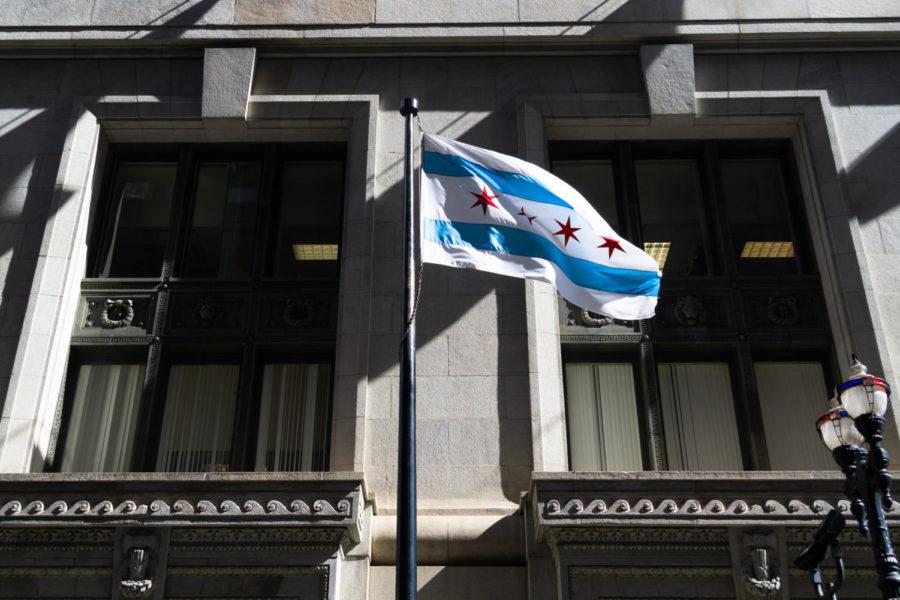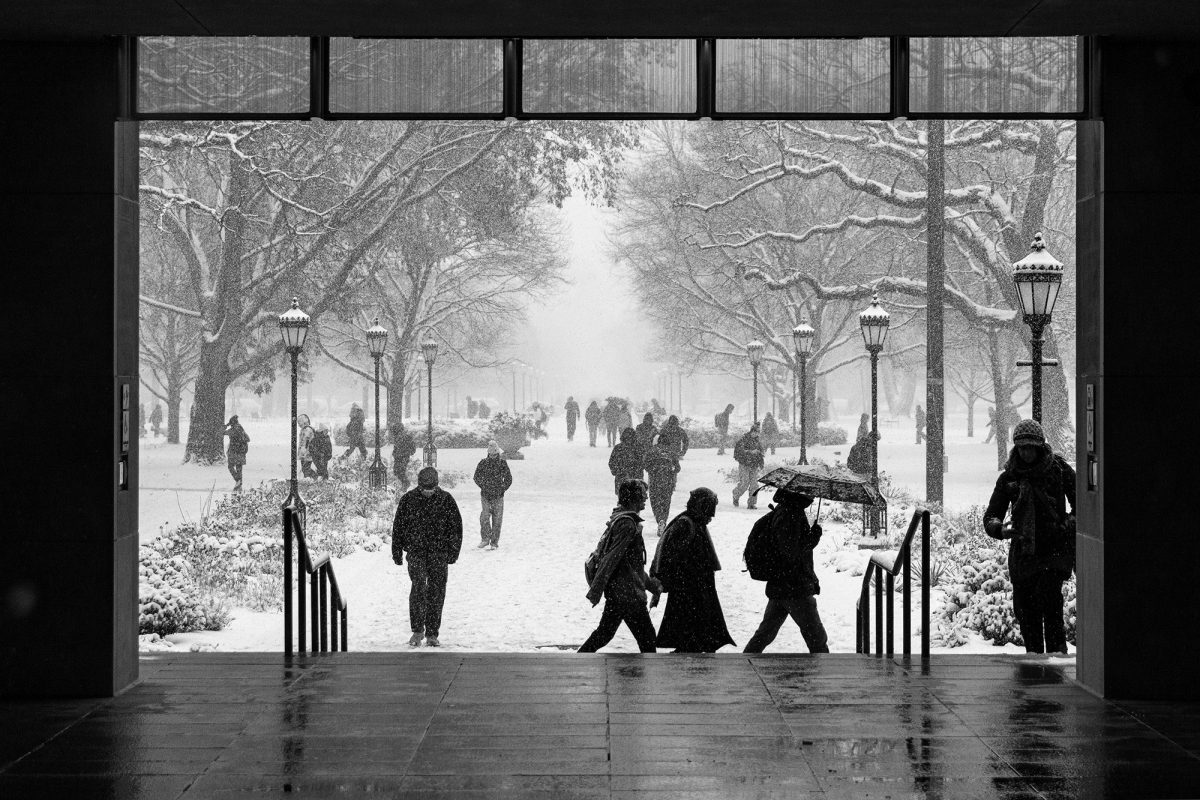Ahead of the upcoming city elections, The Maroon is publishing a series of explainers on the offices and issues Chicagoans will be voting on.
This is the largest mayoral election in Chicago’s recent memory, with 14 candidates vying to stand out from the pack.
The Maroon looks into the functions of the position and how some of the candidates’ widely-discussed proposals match up.
Functions of the Mayor
The powers and duties of mayor of Chicago include:
- Submitting proposals, recommendations, ordinances, and the annual budget to City Council, for more than 50 percent support from City Council. The mayor is not a voting member of City Council.
- Enforcing city ordinances by appointing officials (below)
- Appointing department commissioners or directors and members of city boards and commissions, such as the seven members of Chicago’s school board and the superintendent of the Chicago Police Department. The mayor can appoint officials to over 150 boards and commissions within the city.
- Appointing an alderman to a vacant seat.
- Serving as the presiding officer of City Council during meetings, meaning that they decide all questions of order.
- Exercising veto power on ordinances passed by City Council.
Chicago operates under a strong mayor-council system, meaning that more power is concentrated in the hands of the mayor rather than in the City Council.
The new mayor will seek to redress unpopular decisions made by outgoing Mayor Rahm Emanuel—who announced in September that he will not seek re-election. Among these acts include the 2013 closure of 50 public schools, his handling of the Laquan McDonald shooting, and the closure of half the city’s mental health facilities in 2012.
The Candidates’ Ideas: Innovative or Ineffectual?
Elected School Board
In the wake of unpopular education policy enacted under Emanuel’s administration, notably the wave of closures in 2013, Chicago citizens began to call for an elected school board, and in 2015, Chicagoans overwhelmingly voted “yes” on a non-binding referendum. However, efforts to make an elected school board a reality have been continually thwarted on state and local levels.
Six candidates (Bill Daley, Gery Chico, John Kozlar, Susana Mendoza, Paul Vallas, and Garry McCarthy) support the idea of a hybrid school board, with some members appointed by the mayor and the rest elected. Both Mendoza and Chico view hybrid school boards as a way of keeping the mayor accountable for educational decisions.
Those who support a fully elected board believe it will make the board members more accountable to city residents, rather than being swayed by the interests of the mayor. Amara Enyia, Bob Fioretti, LaShawn Ford, Jerry Joyce, Lori Lightfoot, Toni Preckwinkle, Neal Sales-Griffin, and Willie Wilson support a fully elected board.
Free City College
Candidate Daley has made waves with a radical K-14 proposal, wherein City Colleges of Chicago (CCC) would merge with Chicago Public Schools (CPS) and offer free tuition for all students who graduate from a CPS high school. Though the proposal is largely considered impossible, other candidates such as Preckwinkle, Lightfoot, Enyia, Wilson, and Ford are interested in making CCC tuition-free.
Daley’s idea stems from the need for a college education to enter today’s workforce and the fact that 70 percent of CPS graduates are not college-ready. He hopes that the merger would allow more students to afford college. But doing so would require changing laws on the state and local level and would give CPS even more responsibilities to handle.
The City has already implemented the property tax–funded Star Scholarship program, which guarantees free tuition to CPS graduates with a 3.0 GPA or higher. The system has proved to be enormously effective and is the only program of its kind in the state.
However, making college free for more than 25,000 high school seniors will require additional funding. No candidate has outlined a plan for such an endeavor outside of state and federal grants.
Police Reform
Chicagoans’ trust in the Chicago Police Department (CPD) has always been rocky, but the relationship has become especially strained following the shooting of Laquan McDonald by officer Jason Van Dyke. Mayoral hopefuls have proposed several plans to begin the slow process of rebuilding that trust and the integrity of the police.
One plan will have to involve the Chicago police consent decree, which is a court order that will bring about a broad overhaul to the CPD’s policies and practices. The decree mandates, among many things, that officers document each time they draw their weapons, even if they don’t shoot.
Former Illinois Attorney General Lisa Madigan authored the decree, which was approved last week, after the McDonald and Van Dyke case revealed the lack of sufficient training and accountability within CPD.
The federal judge who approved the decree will oversee its implementation, but the next mayor’s cooperation will determine its ultimate effectiveness, especially with regard to determining civilian oversight. Emanuel was initially skeptical of the decree, but has recently expressed his support. Mayoral candidates vary greatly in their support of the decree.
Kozlar, Fioretti, and McCarthy are opposed to the decree either in part or in full. McCarthy, who was fired from his position as police superintendent in the aftermath of the 2015 release of the McDonald video, believes that the decree scapegoats police and is solely a political move. McCarthy believes that enforcement of the decree could undermine public safety and underestimates the challenges faced by police.
On the other hand, candidates such as Lightfoot are enthusiastic proponents of the decree. In a response to the Chicago Sun-Times, Lightfoot wrote, “It is the only tool currently available to make the systemic reforms necessary.”
Three candidates have also proposed the creation of mayoral offices surrounding police reform and public safety. The offices are named differently but seem to tackle similar issues.
Preckwinkle suggested the creation of an Office of Criminal Justice focusing on gun violence, juvenile justice, and neighborhood stabilization. Chico has proposed an Office of Violence Prevention and Reduction, which would work to reduce gang violence and implement the consent decree with 15 agencies around the city alongside nonprofit and private sector groups. Lightfoot has spoken at length about an Office of Public Safety, which would create a “network of community-based public and private mental health and wellness assets.”
Mental Health
In 2012, City Council voted in favor of a budget austerity measure proposed by Emanuel to close half of the city’s mental health facilities. All of the mayoral candidates wish to reopen mental health clinics, but propose different approaches to funding them.
Lightfoot has said that she would task her proposed Office of Public Safety with leading a committee to rebuild community-based public and private mental health facilities. McCarthy has said that he would put some of the money behind the new $95 million police academy towards reopening mental health centers as part of a long-term crime reduction and public health plan. Preckwinkle, Lightfoot, Enyia, Wilson, and Ford have all promised to invest $25 million in mental health services.
But with only $1.4 million allotted to mental health services in the 2019 budget, a $25 million investment seems like a large leap that is dependent on the mayor’s ability to pull money from other projects.
Raising the Minimum Wage to $15/hour
The state’s minimum wage is currently set at $8.25/hour, while Chicago’s currently stands at $12/hour. Though the city’s minimum will increase to $13 on July 1, some mayoral candidates say they would go a step further and raise it to $15.
Chicago can raise its minimum wage without state approval, but, with Governor J.B. Pritzker planning to push for a higher state minimum wage, critics are unsure if a $15 proposal is as beneficial as it seems. Some argue that raising the minimum wage in Chicago before the state raises wages will leave the city at a competitive disadvantage to suburbs due to higher labor costs. Others are concerned that small business owners could be hurt due to those higher costs.
Candidates like Daley and McCarthy are especially concerned about a raise’s effect on small business owners. Daley wants to first see the effects of the raise to $13 before proposing an additional increase.
Preckwinkle views waiting on the state to raise wages first as a needless delay, given that Chicago is “the economic engine for the state.” Preckwinkle argues that raising wages will make it significantly easier for individuals to make ends meet.
Preckwinkle’s stance has earned her the backing of labor unions like Service Employees International Union (SEIU), which represents workers in health care, public, and property services. A supporter of Preckwinkle, SEIU Healthcare Illinois President Greg Kelley released a statement saying that he believes that the increase in wages will result in more spending in city businesses, ultimately offsetting the pressure that the hike will initially cause.
One unexpected effect of minimum wage increases has been the increase in the teenage workforce, as teenage employees are excluded from the minimum wage increase in Chicago. Under state law, teens under 18 can be paid 50 cents below the state minimum wage, meaning that employers need only pay teenagers $7.75 per hour. As the cost of employing adults increases, some owners are finding a teenage workforce appealing for this reason.








